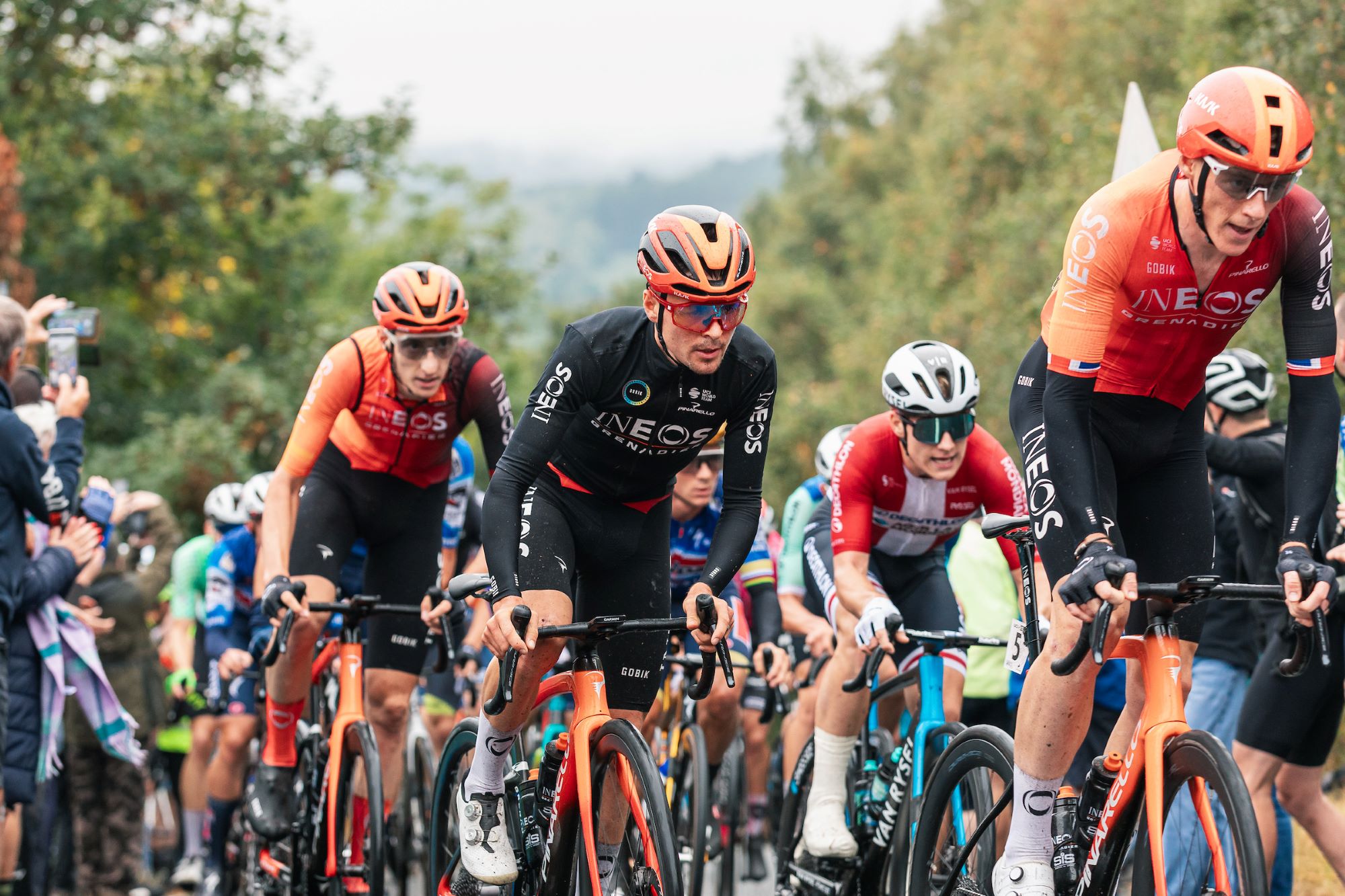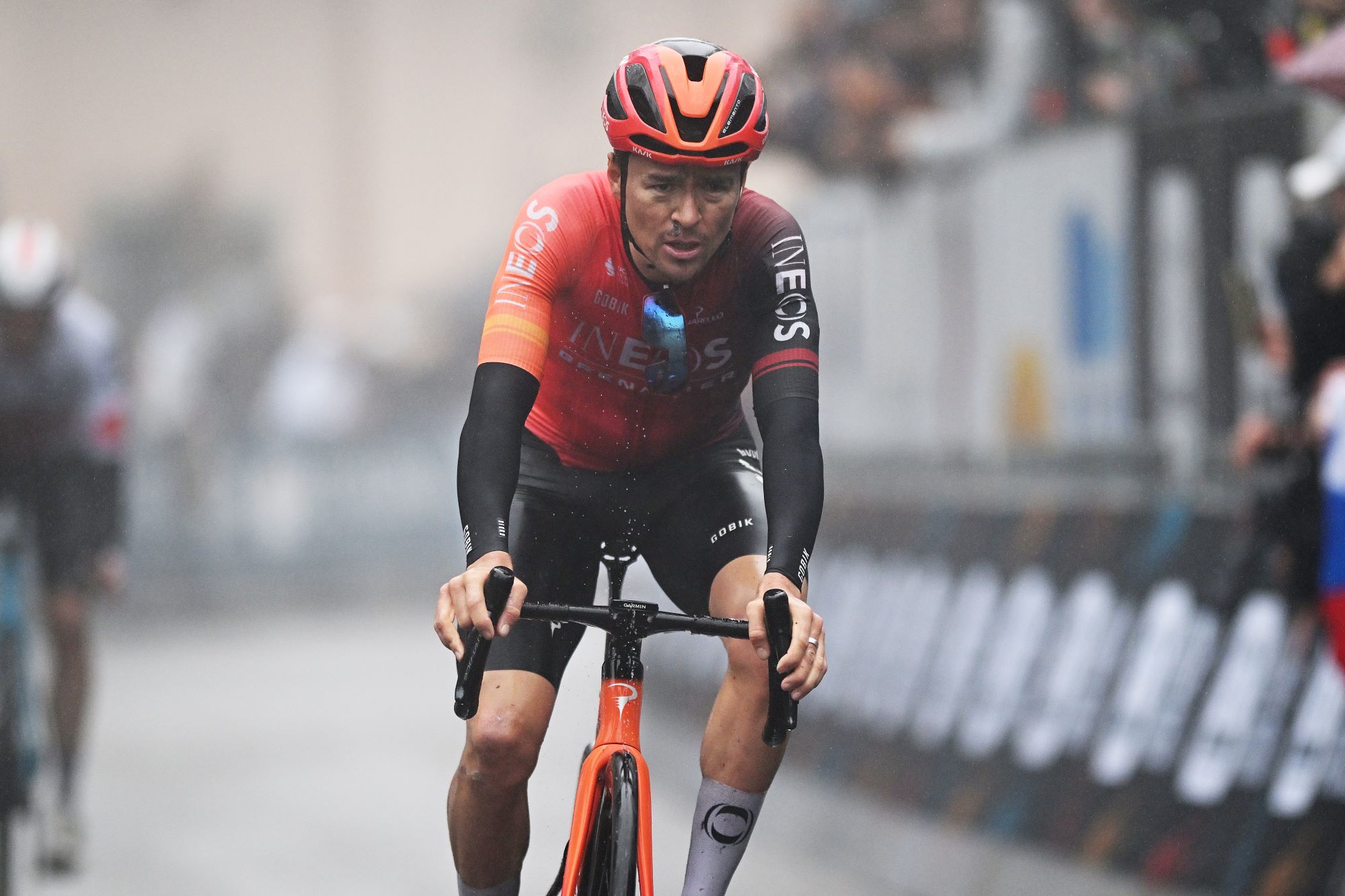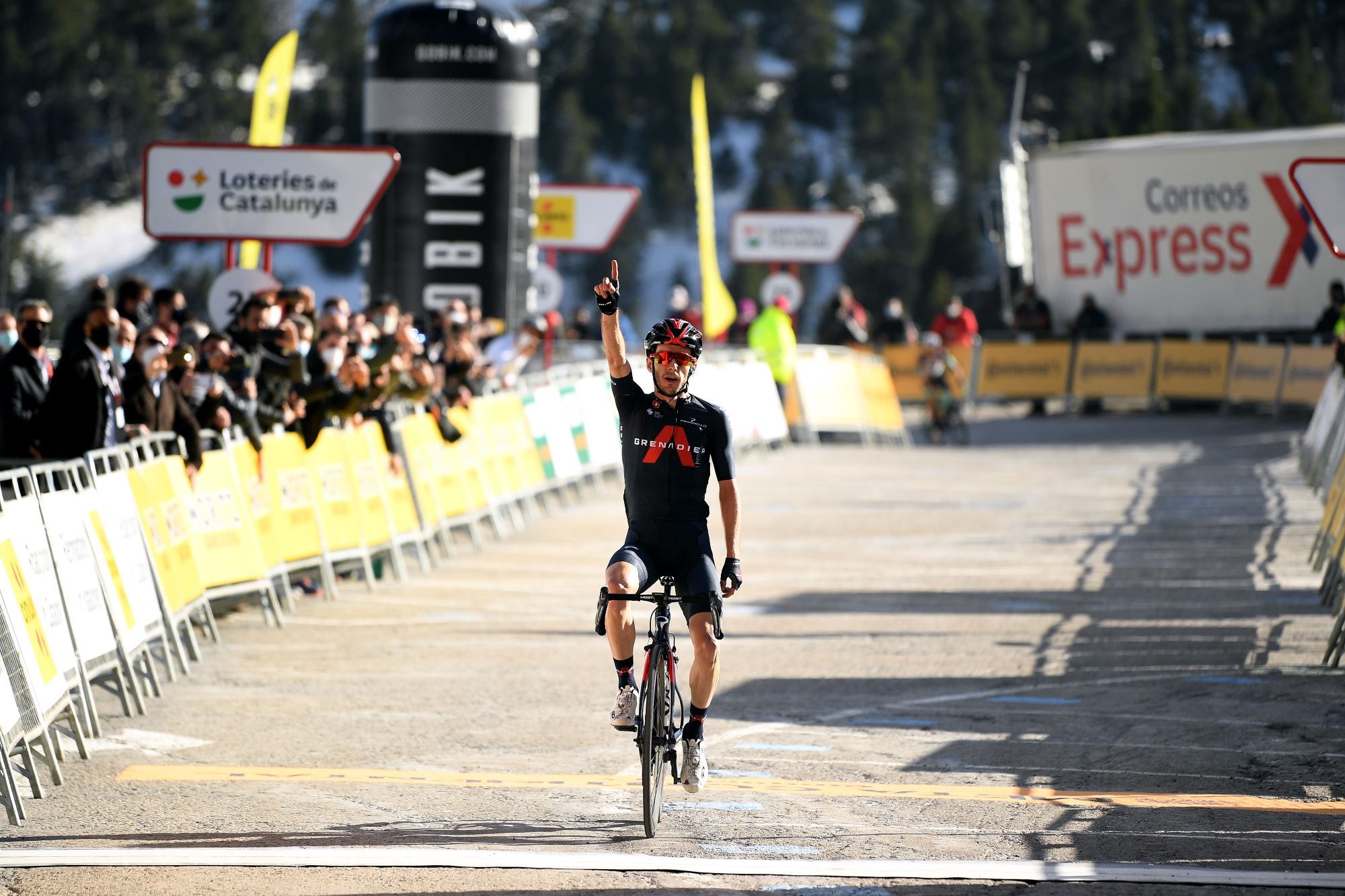
Steve Cummings has officially left Ineos Grenadiers, after a turbulent season during which he was omitted from the staff line-up for the Tour de France, the biggest race of the year. The future for the former Director of Racing appeared to be unclear until he confirmed his departure from the team in a LinkedIn post on Tuesday evening.
His quiet exit, along with Xabier Artetxe - Egan Bernal and Carlos Rodríguez’s personal coach - is one of many concerns after Ineos endured their worst-ever season since their inception as Team Sky. It is the second season in a row that Ineos have lost their Director of Racing, and has gone through a subsequent reshuffle.
Disharmony has appeared to engulf the squad in recent months, with Cummings' departure coming hot on the heels of uncertainty around key rider Tom Pidcock's future, although it is thought that the Olympic MTB champion is still staying. Cummings’ own announcement this week is yet to be commented on by the team.
As well as several riders, Dan Bigham moved on and pulled no punches in his assessment of the situation in an interview with the Daily Telegraph, saying the squad "lacked clarity". Other longstanding staff members have also left, and performance director Dr Scott Drawer, has lead an extensive overhaul, which included the arrival of several new appointments in recent weeks. Kurt Asle Arvesen has arrived from Uno-X Mobility as "lead sports director", which appears to be a direct replacement for Cummings.
Only time will tell if losing Cummings and Bigham will bring about change. The former was one of the team’s most successful Tour de France sports directors in recent years, overseeing stage wins from the likes of Tom Pidcock and a podium finish from Geraint Thomas in 2022. The new setup, described as being like a "coalition government" by Thomas, failed to deliver a podium finish or stage win at the biggest race of the season this year.

Scheduling and preparation for the Tour was always going to be complicated by the Paris Olympics, particularly with Pidcock making it clear that the Olympic mountain bike event was his main aim of the year, although the timing of the Olympics was an issue for nearly all of the peloton. The timing did not prevent Remco Evenepoel from performing in both events to the very highest, race winning level.
Despite the disappointing picture of the team’s year, all is not lost as they look to move forward and recapture the status they once enjoyed as one of the sport’s most powerful and consistently successful entities. The Jim Ratcliffe-backed squad still possesses several hugely talented riders capable of leading a GC renaissance in the race they once dominated, although ensuring the entire team fully unites behind the likes of Carlos Rodríguez may prove to be an expensive challenge.
The Tom Pidcock saga

If they are to truly push on in the short term next year then the first priority must be to resolve Tom Pidcock’s future urgently. The transfer saga surrounding the 25-year-old has, at times, threatened to undermine the stability of the team, with his dramatic deselection from the Il Lombardia lineup reportedly leaving riders disillusioned ahead of the final Monument of the campaign. The saga is reported to have temporarily halted, but for how long that will continue remains to be seen.
Pidcock’s recent public comments regarding his employers do not exactly hint at the happy, harmonious and united team that Ineos CEO John Allert alluded to before the Tour de France when discussing Cummings’ shock absence. The Brit's talent speaks for itself, as do the huge achievements listed on his palmarès, although Ineos could ultimately benefit from his potential departure, but that seems unlikely for now.
What Ineos may lose financially from Pidcock’s exit could in the long run appear to fade into insignificance if overall unity can be restored. That’s not to say that Pidcock is central to their problems. The Yorkshireman won Amstel-Gold this year, arguably the biggest Ineos result of the campaign, although individual riders having their own "entourage" can never be good for wider team cohesion, a fact highlighted by Geraint Thomas himself, when he said the people around Pidcock don't help his relationship with team management.
If Ineos don’t recapture that unity in the short term then it is difficult to see how they can really move forward. Other teams like Red Bull-Bora-Hansgrohe and Soudal Quick-Step look to publicly portray an image of togetherness, adopting phrases like "The Wolfpack" and "Band of Brothers" to describe themselves on social media platforms. To some these may appear to be corny marketing slogans, but they genuinely appear to hold some weight and meaning for the riders and staff involved.
Transfers and talent pipeline

Building a successful development squad to provide a talent pipeline to the WorldTour roster will be crucial for the team’s long-term future. A large number of the other major teams have a structure that fits that description, but Ineos have lacked that setup for some time meaning that upcoming talent has subsequently found a home elsewhere.
The team has brought in some promising young riders for 2025, including Samuel Watson and Axel Laurance, although a thriving development structure - which Daniel Benson recently reported could be close - would help bridge the enormous gap between Ineos and teams like UAE Emirates and Visma-Lease a Bike over time.
Ineos' work in the transfer market also needs to be significantly improved. For too long indispensable riders have been moved on elsewhere and ultimately strengthened their rivals - Richard Carapaz, Adam Yates and Dani Martínez are three clear examples. Retaining Carlos Rodríguez last year when Movistar were lurking was a step in the right direction and that needs to continue. Talents like this do not come around often and he is more than likely the only realistic option for a Grand Tour podium finish next year.
The lack of major, expensive signings of late raises questions regarding the team’s budget, as does their continued lack of a women’s squad. There was a time when Team Sky appeared to have an open cheque book, but that seemed to gradually fade during the transition to Ineos, particularly in recent years, which has coincided with Ratcliffe’s interest in football and other sporting pursuits.
Ineos' biggest problem appears to lie in that sense of togetherness. That was evidenced in the 2023 Tour and felt present once more at the start of the race this time out.
Ultimately some would argue that cycling has become too engulfed in science and data, with Ineos perhaps being the perfect example of that phenomenon.
Watts per kilo and power output look to now take full precedence over other basic areas like nurturing a culture of empathy and understanding, which surely is equally as integral when looking to encourage and maintain an elite performance environment.
Perhaps that is what top level sport has now become and there is no longer room for sentimentality. Then again, if a team of people can’t relate to each other on a basic human level and put their own agendas to one side temporarily, what hope does anyone really have of ever achieving success?







